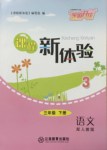题目内容
Hi, I’m your tooth. I’ve been asked to represent the rest of your teeth. We need your help. We like to be clean when you show us off with your big, wide smiles.
First, let me tell you a little about us. You weren’t born with the baby teeth, they developed when you were about six or seven months old. You went from milk to real food in no time thanks to your twenty primary teeth. Eventually, they loosened and fell out, one at a time, probably about the time you were six or seven years old.
Then we came into your life. We are your permanent teeth, all twenty-eight of us. Some people may even have thirty-two depending on those wisdom teeth in the back. Sometimes they are able to help, and sometimes they cause trouble. Many times wisdom teeth are sideways and have to be pulled. Some people don’t even have them at all!
On a more personal note, I am an incisor, and you have seven more just like me, here in the front of your mouth. We do the biting on those chocolate chip cookies you like so much. Next to us are the canines, four sharp teeth, two on either side. Their job is to tear food; pizza is a good one for them. Behind them are eight premolars and eight to twelve molars, depending on those wisdom teeth. The molars do the majority of the work chewing the food that you eat. They do a great job on those carrots you like so much!
Did you know we not only help you bite and chew but also help you talk? That’s right. Try to say “tooth” without letting your tongue touch the back of your teeth. It sounds pretty funny, doesn’t it?
1.How many teeth does a four-year-old boy usually have according to the passage?
A. 20. B. 24. C. 28. D. 32.
2.Why are the wisdom teeth pulled sometimes?
A. Because they are useless.
B. Because they are in the back.
C. Because they are ugly.
D. Because they grow in wrong directions.
3.The word “I” in the passage refers to a _____.
A. wisdom tooth B. baby tooth
C. molar D. permanent tooth
1.A
2.D
3.D
【解析】
试题分析:这是一篇说明文。它介绍了人的牙齿,以及牙齿的功能。我们要保护好自己的牙齿。
1.1】细节理解题。根据第二段第三句You went from milk to real food in no time thanks to your twenty primary teeth.句意是:多亏了你最初的二十颗牙齿,你从牛奶倒能吃真正的食物。所以一个四岁的男孩通常有二十颗牙齿。故选A
2.2】细节理解题。根据第三段第三、四句Some people may even have thirty-two depending on those wisdom teeth in the back. Sometimes they are able to help, and sometimes they cause trouble.一些人甚至可能有三十二颗牙,这取决于后面的智牙。有时候它们有用,有时候它们会引起麻烦。因为它们生长在错误的方向,所以有时候会被拔掉。故选D
3.3】细节理解题。根据第一段第一句Hi, I’m your tooth. I’ve been asked to represent the rest of your teeth.我是你的牙,我代表其余的牙。第三段第一、二句Then we came into your life. We are your permanent teeth,然后我们进入你的生活,我们是你永久的牙齿。所以I指代的是“永久的牙”。故选D
考点:考查说明文阅读。

 芝麻开花课程新体验系列答案
芝麻开花课程新体验系列答案